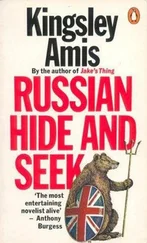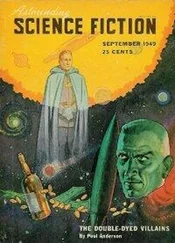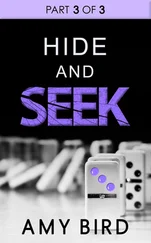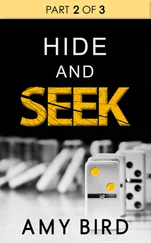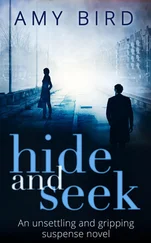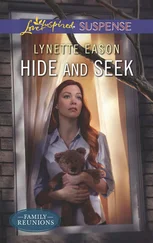Уилки Коллинз - Hide and Seek
Здесь есть возможность читать онлайн «Уилки Коллинз - Hide and Seek» весь текст электронной книги совершенно бесплатно (целиком полную версию без сокращений). В некоторых случаях можно слушать аудио, скачать через торрент в формате fb2 и присутствует краткое содержание. Год выпуска: 2005, Жанр: Классическая проза, на английском языке. Описание произведения, (предисловие) а так же отзывы посетителей доступны на портале библиотеки ЛибКат.
- Название:Hide and Seek
- Автор:
- Жанр:
- Год:2005
- ISBN:нет данных
- Рейтинг книги:5 / 5. Голосов: 1
-
Избранное:Добавить в избранное
- Отзывы:
-
Ваша оценка:
- 100
- 1
- 2
- 3
- 4
- 5
Hide and Seek: краткое содержание, описание и аннотация
Предлагаем к чтению аннотацию, описание, краткое содержание или предисловие (зависит от того, что написал сам автор книги «Hide and Seek»). Если вы не нашли необходимую информацию о книге — напишите в комментариях, мы постараемся отыскать её.
Hide and Seek — читать онлайн бесплатно полную книгу (весь текст) целиком
Ниже представлен текст книги, разбитый по страницам. Система сохранения места последней прочитанной страницы, позволяет с удобством читать онлайн бесплатно книгу «Hide and Seek», без необходимости каждый раз заново искать на чём Вы остановились. Поставьте закладку, и сможете в любой момент перейти на страницу, на которой закончили чтение.
Интервал:
Закладка:
Zack, who was a remarkably quick boy when he chose to exert himself, got his lesson by heart in so short a time that his mother insisted on hearing him twice over, before she could satisfy herself that he was really perfect enough to appear in his father’s presence. The second trial decided her doubts, and she took him in triumph down stairs.
Mr. Thorpe was reading intently, Mr. Goodworth was thinking profoundly, the rain was falling inveterately, the fog was thickening dirtily, and the austerity of the severe-looking parlor was hardening apace into its most adamantine Sunday grimness, as Zack was brought to say his lesson at his father’s knees. He got through it perfectly again; but his childish manner, during this third trial, altered from frankness to distrustfulness; and he looked much oftener, while he said his task, at Mr. Goodworth than at his father. When the texts had been repeated, Mr. Thorpe just said to his wife, before resuming his book—“You may tell the nurse, my dear, to get Zachary’s dinner ready for him—though he doesn’t deserve it for behaving so badly about learning his lesson.”
“Please, grandpapa, may I look at the picture-book you brought for me last night, after I was in bed?” said Zack, addressing Mr. Goodworth, and evidently feeling that he was entitled to his reward now he had suffered his punishment.
“Certainly not on a Sunday,” interposed Mr. Thorpe; “your grandpapa’s book is not a book for Sundays.”
Mr. Goodworth started, and seemed about to speak; but recollecting what he had said to Mr. Thorpe, contented himself with poking the fire. The book in question was a certain romance, entitled “Jack and the Bean Stalk,” adorned with illustrations in the freest style of water-color art.
“If you want to look at picture-books, you know what books you may have to-day; and your mamma will get them for you when she comes in again,” continued Mr. Thorpe.
The works now referred to were, an old copy of the “Pilgrim’s Progress” containing four small prints of the period of the last century; and a “Life of Moses,” illustrated by severe German outlines in the manner of the modern school. Zack knew well enough what books his father meant, and exhibited his appreciation of them by again beginning to wriggle his shoulders in and out of his frock. He had evidently had more than enough already of the “Pilgrim’s Progress” and the “Life of Moses.”
Mr. Thorpe said nothing more, and returned to his reading. Mr. Goodworth put his hands in his pockets, yawned disconsolately, and looked, with a languidly satirical expression in his eyes, to see what his grandson would do next. If the thought passing through the old gentleman’s mind at that moment had been put into words, it would have been exactly expressed in the following sentence:—“You miserable little boy! When I was your age, how I should have kicked at all this!”
Zack was not long in finding a new resource. He spied Mr. Goodworth’s cane standing in a corner; and, instantly getting astride of it, prepared to amuse himself with a little imaginary horse-exercise up and down the room. He had just started at a gentle canter, when his father called out, “Zachary!” and brought the boy to a stand-still directly.
“Put back the stick where you took it from,” said Mr. Thorpe; “you mustn’t do that on Sunday. If you want to move about, you can walk up and down the room.”
Zack paused, debating for an instant whether he should disobey or burst out crying.
“Put back the stick,” repeated Mr. Thorpe.
Zack remembered the dressing-room and the “Select Bible Texts for Children,” and wisely obeyed. He was by this time completely crushed down into as rigid a state of Sunday discipline as his father could desire. After depositing the stick in the corner, he slowly walked up to Mr. Goodworth, with a comical expression of amazement and disgust in his chubby face, and meekly laid down his head on his grandfather’s knee.
“Never say die, Zack,” said the kind old gentleman, rising and taking the boy in his arms. “While nurse is getting your dinner ready, let’s look out of window, and see if it’s going to clear up.”
Mr. Thorpe raised his head disapprovingly from his book, but said nothing this time.
“Ah, rain! rain! rain!” muttered Mr. Goodworth, staring desperately out at the miserable prospect, while Zack amused himself by rubbing his nose vacantly backwards and forwards against a pane of glass. “Rain! rain! Nothing but rain and fog in November. Hold up, Zack! Ding-dong, ding-dong; there go the bells for afternoon church! I wonder whether it will be fine to-morrow? Think of the pudding, my boy!” whispered the old gentleman with a benevolent remembrance of the consolation which that thought had often afforded to him, when he was a child himself.
“Yes,” said Zack, acknowledging the pudding suggestion, but declining to profit by it. “And, please, when I’ve had my dinner, will somebody put me to bed?”
“Put you to bed!” exclaimed Mr. Goodworth. “Why, bless the boy! what’s come to him now? He used always to be wanting to stop up.”
“I want to go to bed, and get to to-morrow, and have my picture-book,” was the weary and whimpering answer.
“I’ll be hanged, if I don’t want to go to bed too!” soliloquized the old gentleman under his breath, “and get to to-morrow, and have my ‘Times’ at breakfast. I’m as bad as Zack, every bit!”
“Grandpapa,” continued the child, more wearily than before, “I want to whisper something in your ear.”
Mr. Goodworth bent down a little. Zack looked round cunningly towards his father—then putting his mouth close to his grandfather’s ear, communicated the conclusion at which he had arrived, after the events of the day, in these words—
“I say, granpapa, I hate Sunday!”
BOOK I.
THE HIDING.
CHAPTER I.
A NEW NEIGHBORHOOD, AND A STRANGE CHARACTER.
At the period when the episode just related occurred in the life of Mr. Zachary Thorpe the younger—that is to say, in the year 1837—Baregrove Square was the farthest square from the city, and the nearest to the country, of any then existing in the north-western suburb of London. But, by the time fourteen years more had elapsed—that is to say, in the year 1851—Baregrove Square had lost its distinctive character altogether; other squares had filched from it those last remnants of healthy rustic flavor from which its good name had been derived; other streets, crescents, rows, and villa-residences had forced themselves pitilessly between the old suburb and the country, and had suspended for ever the once neighborly relations between the pavement of Baregrove Square and the pathways of the pleasant fields.
Alexander’s armies were great makers of conquests; and Napoleon’s armies were great makers of conquests; but the modern Guerilla regiments of the hod, the trowel, and the brick-kiln, are the greatest conquerors of all; for they hold the longest the soil that they have once possessed. How mighty the devastation which follows in the wake of these tremendous aggressors, as they march through the kingdom of nature, triumphantly bricklaying beauty wherever they go! What dismantled castle, with the enemy’s flag flying over its crumbling walls, ever looked so utterly forlorn as a poor field-fortress of nature, imprisoned on all sides by the walled camp of the enemy, and degraded by a hostile banner of pole and board, with the conqueror’s device inscribed on it—“THIS GROUND TO BE LET ON BUILDING LEASES?” What is the historical spectacle of Marius sitting among the ruins of Carthage, but a trumpery theatrical set-scene, compared with the mournful modern sight of the last tree left standing, on the last few feet of grass left growing, amid the greenly-festering stucco of a finished Paradise Row, or the naked scaffolding poles of a half-completed Prospect Place? Oh, gritty-natured Guerilla regiments of the hod, the trowel, and the brick-kiln! the town-pilgrim of nature, when he wanders out at fall of day into the domains which you have spared for a little while, hears strange things said of you in secret, as he duteously interprets the old, primeval language of the leaves; as he listens to the death-doomed trees, still whispering mournfully around him the last notes of their ancient even-song!
Читать дальшеИнтервал:
Закладка:
Похожие книги на «Hide and Seek»
Представляем Вашему вниманию похожие книги на «Hide and Seek» списком для выбора. Мы отобрали схожую по названию и смыслу литературу в надежде предоставить читателям больше вариантов отыскать новые, интересные, ещё непрочитанные произведения.
Обсуждение, отзывы о книге «Hide and Seek» и просто собственные мнения читателей. Оставьте ваши комментарии, напишите, что Вы думаете о произведении, его смысле или главных героях. Укажите что конкретно понравилось, а что нет, и почему Вы так считаете.


